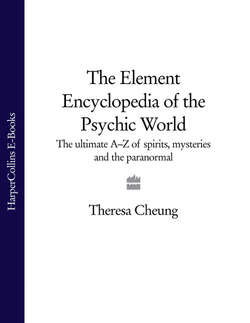Читать книгу The Element Encyclopedia of the Psychic World: The Ultimate A–Z of Spirits, Mysteries and the Paranormal - Theresa Cheung, Theresa Cheung - Страница 266
A brief history of dreams
ОглавлениеPeople have always been fascinated by dreams and what they mean. All primitive religions viewed dreams as ways for the spirits or deities to speak to humans. The earliest known dream dictionary dates back around 4,000 years. Now called the Chester Beatty Papyrus it came from Thebes in Upper Egypt and is kept in the British Museum. In the Chester Beatty Papyrus dreams are interpreted and translated as omens or prophecies. For example, dreaming that your teeth fall out is interpreted as a loved one trying to kill you.
In ancient Greece dreams were also thought to be unlucky or lucky predictions. Around AD 200, Artemidorus, a dream interpreter who lived in Asia Minor, wrote a book about dream interpretation that suggested that dreams were continuations of the dreamer’s day. The Old Testament makes countless references to dream interpretation.
The importance of dreams and their meanings were prominent in the writings of the Early Church Fathers, including St Augustine, up until the time of St Thomas Aquinas (1225-1274) who regarded dreams as insignificant; for several hundred years afterwards, dreams were no longer considered important. Even Shakespeare called them ‘children of the idle brain’. Although dream interpretation did continue to be an important part of the service of magicians and astrologers, this dreams-should-be-ignored school of thought persisted until the nineteenth century. Then along came psychiatrists Sig-mund Freud and Carl Jung, the two men who have had the greatest impact on the way we look at dreams today.
Sigmund Freud (1856-1939) opened the door to the scientific study of dreams with his book The Interpretation of Dreams; he considered dreams to be the ‘royal road to the unconscious’ and believed them to be wish fulfilment of repressed sexual desires from childhood. To interpret dreams Freud used a method called free association in which the dreamer says whatever comes to mind in relation to events in the dream.
Freud’s work paved the way for the work of Carl Jung (1875-1961). Jung considered dreams to be expressions of the contents of the collective unconscious, a source of shared knowledge that exists within us all. Jung believed the purpose of dreams was to offer guidance and information about the self. They were the language of the unconscious and they could tell us about the state of our inner lives; to ignore dreams was to court disaster. Even though dream symbols from the collective unconscious have universal or archetypal meanings, according to Jung, only the dreamer could interpret the dream’s true meaning, not an outsider.
There have been other theories since Freud and Jung but for the most part dreams are regarded as tools for change, growth and wellbeing. No one knows how, but dreams seem to be able to link the conscious (waking) mind with the hidden part of the mind called the unconscious or intuition and by so doing they provide a rich and powerful inner resource that can enhance life considerably. Today dream interpretation is extremely popular, with people from all walks of life using dreams as unique and very personal sources of comfort, guidance and inspiration.
